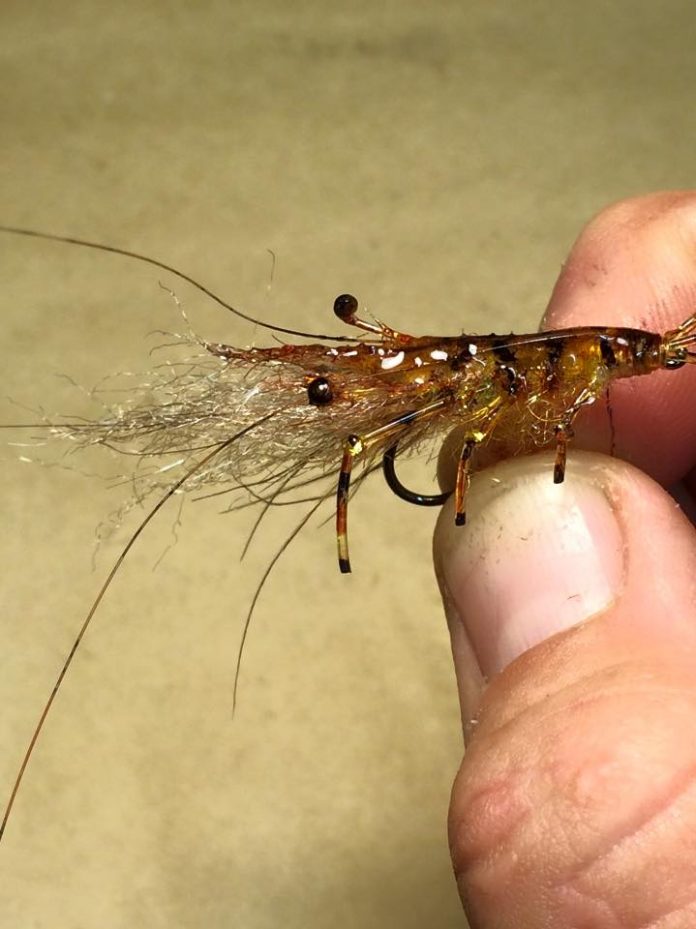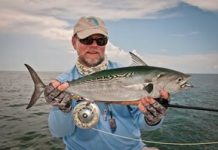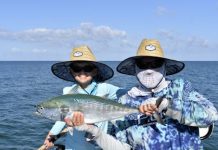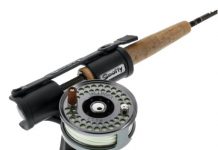 There is no doubt that many an angler has accepted the challenges of fly fishing in the saltwater environment. And many have chosen to hire guides who specialize in fly fishing. These gifted skippers are at once mentors, instructors and expert fishers. But is there anything one can do to assure success?
There is no doubt that many an angler has accepted the challenges of fly fishing in the saltwater environment. And many have chosen to hire guides who specialize in fly fishing. These gifted skippers are at once mentors, instructors and expert fishers. But is there anything one can do to assure success?
Capt. Pat Damico has some answers.
You’ve read all the magazines; tied a bunch of flies that would make any predator throw caution to the wind. There you are, dreaming of constant action from the bow of a flats boat; watching the backing on your smoking reel vanish. And now you simply can’t wait to extend those skills you’ve worked so hard to acquire into the most rapidly expanding area of the long rod. In preparation for your guided trip, are your expectations going to be fulfilled? Will this be like Saturday morning ESPN?
Well, maybe! All of the variables that you’ve experienced fly fishing in the past will still be there. Weather, most notably wind, clouds that will hamper visibility, clear or cloudy water, fish with lockjaw, absence of fish that were “all over the place yesterday,” Jet ski’s and other boaters who like to run in shallow water where you’re fishing, less than ideal tide day, an impatient guide who was up too late last night, etc.
As with most sports, mental conditioning, or being prepared, is extremely important. Fly fishing is no exception. Wanting everything to go right may be too optimistic. Let’s look at some of the things that will make success more attainable.
Make your arrangements as far in advance as possible. This is very important. Once you’ve made your selection of a guide, call, and if possible give him several days that you will be available. You can discuss what species you will pursue during that time frame. Expecting to catch tarpon in our area in January will never happen. He may already be booked, or the tides may not be suitable, and it may at this point be easier for you to change your dates. License requirements, clothing, foot wear, you may do some wading, sun protection, and good polarized glasses, are a few of the items that will be discussed. How many of you will be fishing? What is your experience level? What are his rates?
If you want to bring your own equipment, this should be known. Picking up a client at daybreak who looks like he just stepped out of a fishing catalog with all the wrong gear does happen. A simple question of, “What will you provide?” and “What should I bring?” will cover all bases. When you leave the dock, you should be ready to fish.
Most times, even when a client brings his own gear, he ends up using mine. Having four of my fly rods ready to go is not unusual. As with professional bass fisherman, it is easier to change rods than to modify equipment. An eight weight fly line that served you well for stripped bass in fall in New Jersey will not be effective when July temperatures here are in the nineties. If you’ve never used a leader longer than seven feet and now must use one twelve feet long in skinny water, there is going to be a problem. Wind conditions, size of the fly, presence or absence of structure, casting ability, water clarity, and weight of the fish, are just a few variables that will dictate a change in gear. Some rods will have a floating line and others a sinking tip. A shock leader will be needed for snook or tarpon, but not for trout. Space is limited on a flats boat; everything should be stowed so that it doesn’t interfere with casting, or make noise rattling on the deck or in a hatch.
Your ability to cast with the necessary equipment is the one variable, which if controlled, will insure success. If you’ve never cast more than twenty feet with a seven foot, three weight rod while sneaking up on spooky brook trout in a mountain stream, head for your nearest fly shop where they can let you try rods similar to what you will be using in the salt. A good casting instructor will help you, if necessary, so that you and your muscles become accustomed to heavier equipment. Practice as much as necessary to feel confident. There are saltwater situations where much time is spent looking for fish and when found requiring a quick, accurate presentation. Others will have you casting frequently to a lot of structure. The shallower the water, the further you will have to cast, otherwise the fish will be spooked.
The primary reason you’re doing this should be to have fun. The thrills, challenges, and excitement that can and do happen in saltwater will easily convince you that you have been missing a great extension of an already wonderful pastime. A new convert to this great sport will be born!
Capt. Pat Damico
St. Pete Beach
727-360-6466
pat4jaws@hotmail.com
- Captain’s Corner:Pat Damico - June 25, 2019
- Flat water makes seeing tarpon easier - May 17, 2017
- Warm rivers holding plenty of targets for fly fishermen - February 16, 2017











